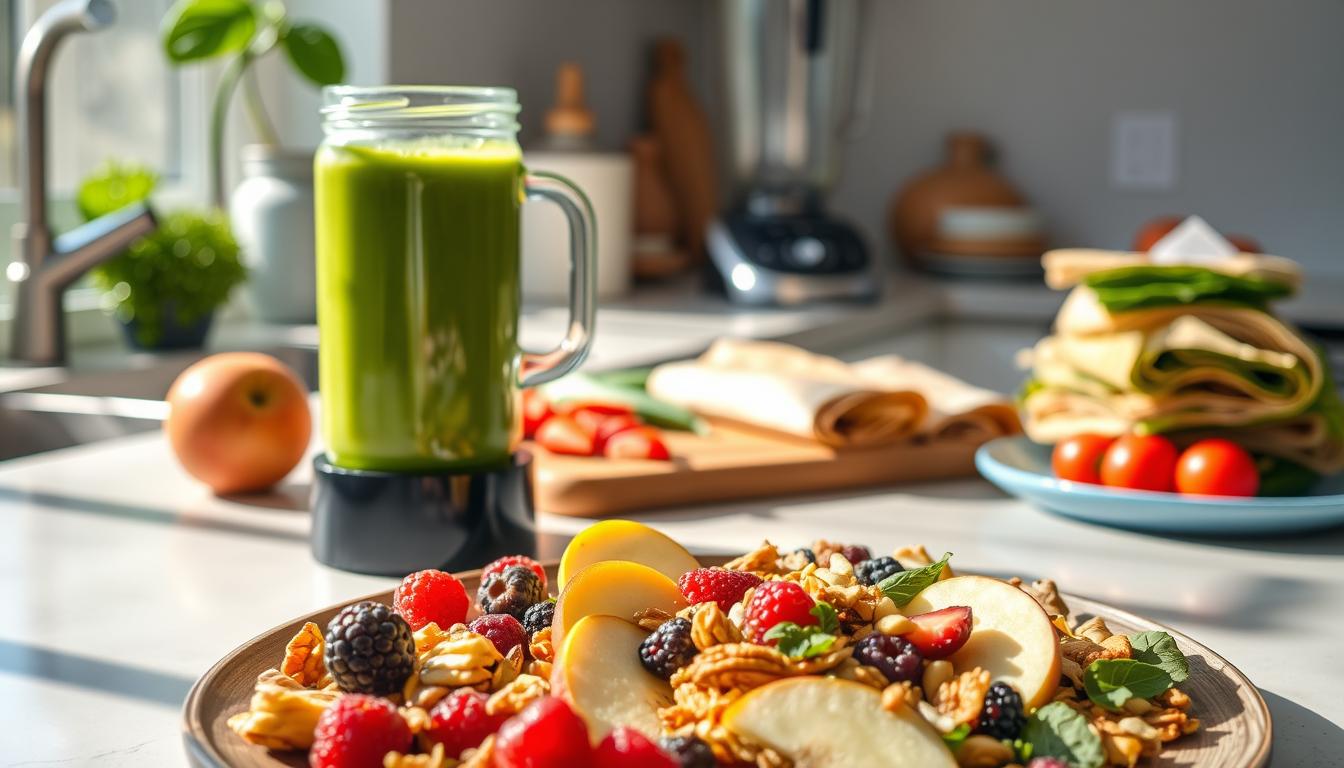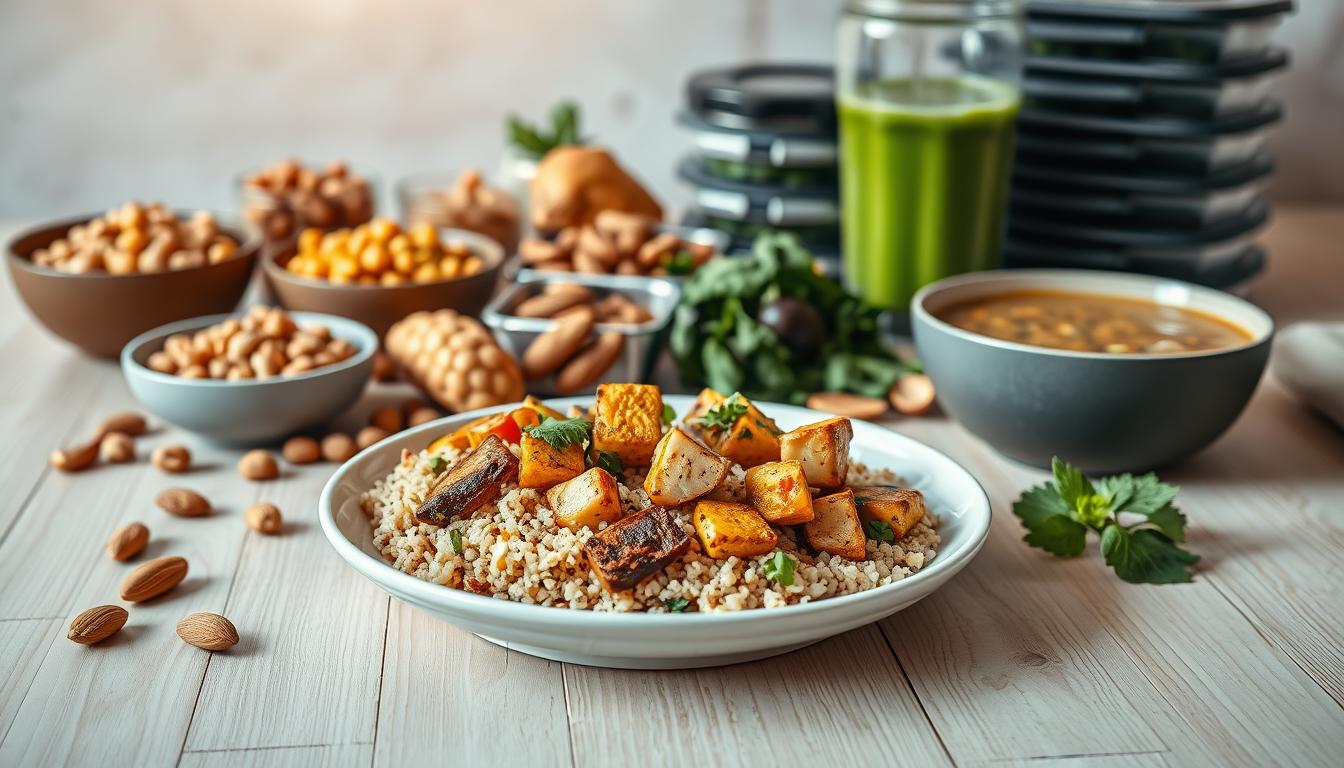A well-planned pre-workout meal can significantly enhance athletic performance and endurance. Did you know that a study found athletes who consumed a balanced meal before…
Plant-Based Fitness Nutrition
High Protein Vegan Meals for Muscle Gain
A well-planned vegan bodybuilding meal plan is crucial for athletes looking to build muscle without consuming animal products. Despite common misconceptions, a vegan diet can…

